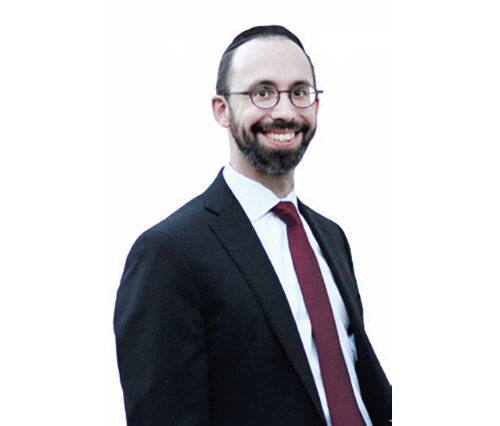
Last year, a phenomenal organization called Chesed 24/7 asked my wife to help them. In most major hospitals in the New York City area, it provides rooms fully stocked with delicious kosher food for patients, their families and visitors. (Indeed, they helped my family so much when my mother-in-law, Rebbetzin Singer, a”h, was in the hospital.) They wanted my wife to host a Shabbos box packing event, where neighbors and friends would come pack boxes filled with all the necessary items for Shabbos—challahs, grape juice, kiddush cups, candles and tablecloths—that sick patients and families would need. My wife was excited to help! What a great zechus (merit) to host this as a merit for her mother’s neshama!
Only one problem: the 9 p.m. start time coincided with the nightly women’s phone conference that learns the sefer Ahavas Chesed written by the Chofetz Chaim. The conflict was quickly resolved. Someone suggested starting the Chesed 24/7 event by a reading from the sefer on chesed and jumping right in to do chesed!
At 9 p.m. my wife welcomed the ladies and started to read the lesson. The opening words sent shivers down her spine. “When parents pass into the next world, the child’s ability to honor and serve them does not disappear. In the months following their passing, the parents’ souls undergo intense scrutiny and the child’s help is much needed. The help needed then and forever after can only be provided through the child’s acts of kindness.”
“Wow. What a message from Hashem,” my wife thought. “This event is giving such a benefit to my mother by all of us getting together to pack Shabbos packages for hospitalized patients.”
That same night I attended a siyum by my neighbor’s son, Yaakov Shimon Spira. While there, Rabbi Spira showed me a Vilna Gaon (Shir Hashirim 6:4) on the relationship of chesed to the loss of the Beis HaMikdash. In Pirkei Avos it says there are three pillars the world stands on: Torah, avodah (service/prayer) and gemilus chasadim (acts of kindness). With the destruction of the Beis Hamikdash, two of the pillars were destroyed. We lost the pillar of avodah, as the Beis Hamikdash clearly was the pillar of avodah. In a sense, we also lost the pillar of Torah, as the verse in Eicha (2:9) says “… there is no Torah.” Although we do currently pray and learn Torah, and we have shuls and yeshivos, the nature of prayer and Torah when the Beis Hamikdash stood was at an extraordinarily higher level. The pillar of kindness, however, remains.
Our world needs the three pillars, but it seems the pillar of chesed can support the world in the interim. This is reflected in the verse in Tehillim, “Hashem built the world based on kindness.” For almost 2,500 years Hashem supported the world with His infinite kindness before he gave us the Torah in 2,448. With the destruction of our Temple almost 2,000 years ago, the world went back to being supported by Hashem’s chesed, and the more chesed we do, the more chesed we merit to receive from Hashem.
Kindness precedes all. We see that from the key attributes of the three Avos. Avraham—chesed, Yitzchak—avodah, Yaakov—Torah. Avraham was first, perfecting the quality of chesed by providing food and shelter to those in need, plus attempting to create peace and harmony and teaching the world about Hashem and His kindness.
Chesed is built into our very lives! A child is born totally helpless. Parents selflessly perform chesed all day for their baby. It’s the chesed parents perform that helps the child to be successful. From this presentation by the Vilna Gaon, we see clearly that one key pillar of the world, kindness, remained intact since the loss of our Beis Hamikdash.
When someone is having a difficult day or his world seems to be crumbling, the helping hand we provide that person may be the key support he needs to overcome his difficulties. Chesed is not just a nice thing to do; it’s essential to our mutual existence. Everyone is entitled to chesed, whether they deserve it or not. We emulate Hashem by going above and beyond in our kindness to all of our fellowmen.
That special day last year brought it all together: First, my wife agreeing to host the box-packing event for the chesed organization in the merit for her mother’s neshama. Then the message of the Chofetz Chaim that acts of kindness are the crucial merits that parents need in the next world from their children. And finally, the teaching of the Vilna Gaon that the pillar of kindness is the only pillar remaining after the loss of the Beis Hamikdash.
Tisha B’Av commemorates the loss of both Temples, the second of which was destroyed because of baseless hatred. Through our present acts of kindness, the opposite of baseless hatred, we can merit to have the Temple rebuilt and the pillars of Torah and avodah restored in their full strength.
By Rabbi Baruch Bodenheim
Rabbi Baruch Bodenheim is the associate rosh yeshiva of Passaic Torah Institute (PTI)/Yeshiva Ner Boruch. PTI has attracted people from all over northern New Jersey, including Teaneck, Paramus, Rockaway and Fair Lawn. He initiated and continues to lead a multi-level Gemara-learning program. Recently he has spread out beyond PTI to begin a weekly beis midrash program with in-depth chavrusa learning in Livingston, Fort Lee and a monthly group in West Caldwell. His email is rb@ptiweb.org.










